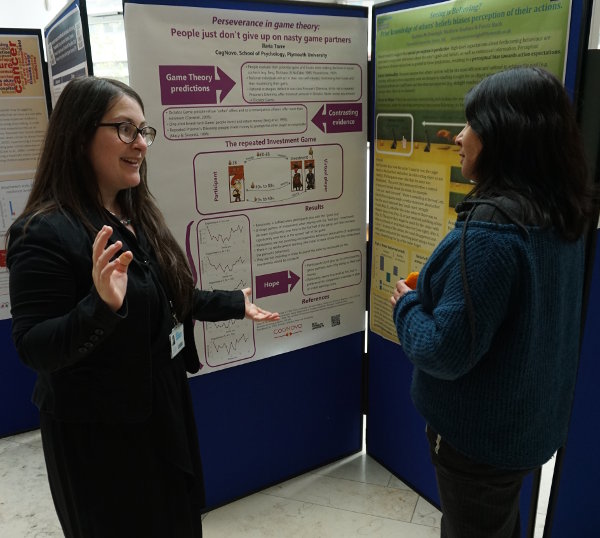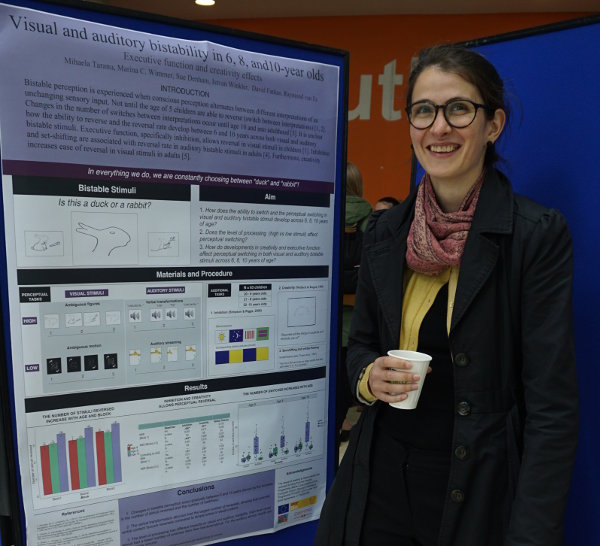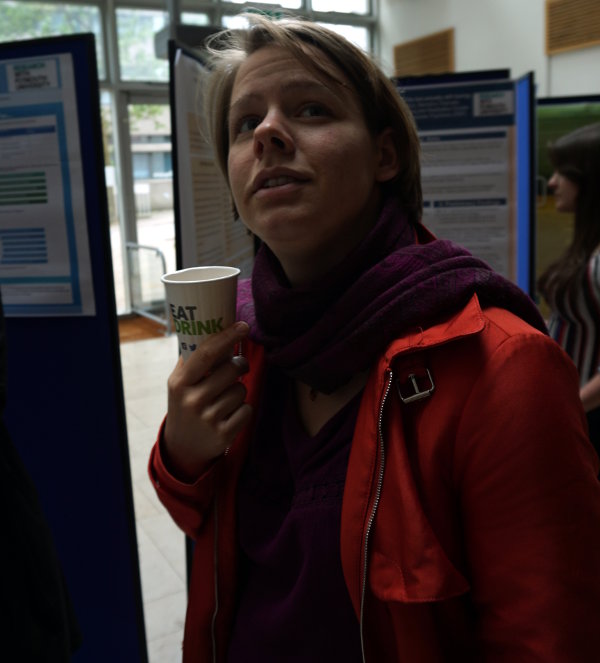




Ilaria Torre, Klara Łucznik, and Mihaela Taranu each presented a poster at the annual Plymouth University School of Psychology conference on 6th June. The conference, which is organised by the PhD Psychology representatives, is a great opportunity for getting up to date with what colleagues in the School have been working on. Additionally, this year the conference had a special poster session dedicated to undergraduate Psychology students.
Ilaria's presentation, which won the 1st place in the poster competition, was entitled "Perseverance in game theory: people just don't give up on nasty game partners". In this poster, she reflected on the fact that theoretical predictions from game theory, which assume that individuals act rationally and prioritise their self interests over mutual cooperation, often do not work in social decision making. When people play games like the Ultimatum Game or the Trust Game, they don't behave optimally, but rather social norms such as fairness and expectation of reciprocity partially guide their actions. Ilaria shows how this was the case also in the experiments she ran using a repeated investment game, with a total or around 400 participants, over the 3 years of her PhD which is about "creating a voice for engagement and trust".
Mihaela presented a poster on "Visual and auditory bistability in 6, 8 and 10- year olds. Executive function and creativity effects". The study shows that perceptual switching develops gradually from 6 to 10 years of age, due to inhibition and creativity abilities. This is part of her PhD project "Commonalities and differences in visual and auditory multistability".
The poster "Group flow and creativity in dance improvisation – a viewer perspective" that Klara Łucznik, is based on her PhD project "Shared Creativity in Dance". The presented study, using consensual assessment technique of experts' judgement, demonstrates that group flow experience enhances the creative output as well as the quality of their performances.